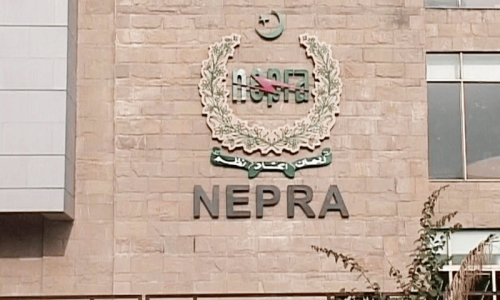A cataclysmic event in the country’s history appears to have ended with a whimper in court.
Nearly a decade since Benazir Bhutto’s tragic assassination, an anti-terrorism court has delivered its questionable verdict in a case that was controversially investigated and prosecuted.
Five suspects accused of involvement in the planning and execution of the attack on Bhutto in Rawalpindi on Dec 27, 2007, have been acquitted; two senior police officers responsible for protecting her on that fateful day and, later, securing the site of the attack for evidentiary purposes have been convicted; and former military dictator and then president retired Gen Pervez Musharraf has been declared an absconder in the case.
It is a thoroughly unsatisfactory conclusion to a case that raised more questions than it purported to answer.
While criticism has been directed at the court, the problem originated with a weak prosecution.
The possibility that the state may appeal the verdict should be considered seriously, and this time the state should assemble a stronger case that is scrupulously backed up by evidence and the law.
The Bhutto assassination consisted of a number of tragedies wrapped into a single traumatic episode.
Surely, a broken criminal judicial and policing system must bear a great deal of the blame for the failure to identify and punish the architects of the former prime minister’s assassination.
Similarly, the Musharraf regime ought to be held accountable for appearing to use Bhutto’s security as a negotiating tool in the political deal-making that was being attempted at the time. But there is another inescapable fact: the PPP won power in 2008, manoeuvred Mr Musharraf out of office and then proceeded to do virtually nothing to try and identify and hold accountable the perpetrators of Bhutto’s murder.
The party and its sympathisers argue that the responsibility to sustain a nascent transition to democracy forced the PPP government to make unpleasant choices. While that may be true — the Asif Zardari-led PPP was under pressure on many fronts — it is also the case that the PPP itself opted to relegate the murder of its iconic leader to the bottom of its list of governance priorities.
Notions of self-survival and having to make unpleasant compromises tend to characterise politicians’ accounts of their time in office. But Bhutto was no ordinary leader and her death should never have been treated as merely another dark chapter in the history of a country that has seen many such incidents.
The PPP government owed it to the nation, its own party and its assassinated leader to identify and prosecute those responsible for her death. The laments of PPP leaders today may be real, but so was their conscious decision to turn their back on their slain leader for the sake of power and public office.
It is a heartbreaking disgrace to the memory of one of the country’s greatest leaders.
Published in Dawn, September 1st, 2017












































